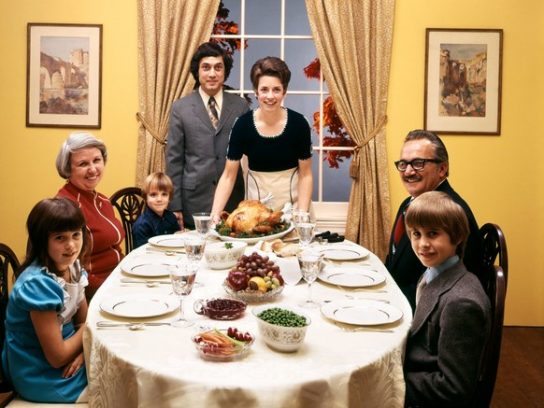You Won't Win the Thanksgiving Fight. But You Can Survive
By Emma Gray Ellis From Wired FOR MANY AMERICANS, regardless of politics, race, gender, or creed, the Thanksgiving dinner table is an emotional minefield hiding underneath a kitschy tablecloth. As turkey time draws nearer, expectations and worries about relatives’ behavior begin to mount, while the media drum toll doles out advice about how to manage tensions. In truth, the holidays are one of the few times when an assortment of people with different political beliefs are apt to meet in real life. Some say it’s your responsibility to educate your relatives across the aisle. Others provide recipes for diffusing that inevitable problematic conversation. (One PR pitch instructed me to “play this song for [my] racist uncle” at the dinner table, as if punk lyrics can kill prejudice.) But the idea that Thanksgiving dinner, is a battleground in need of winners and losers is, in a word, unrealistic. Tensions as deep as complex as those dividing Americans today are not going to be diffused by a few well-chosen words. Resolving conflicts (and changing hearts and minds) requires long-term strategy, not dinner table tactics. Expecting otherwise will bring you disappointment at best, and a raging family argument at worst.Conflict itself is inevitable, and is often the vector of change. According to Peter Coleman, who studies the dynamics of peace and conflict resolution at Columbia University, the Thanksgiving myth that the dinner table will bring family catharsis is rooted in contact theory, the idea that if you confront your ideological opposition in person it will humanize them. “When you have the kinds of conflicts that are hot today—the Trump supporter and hater conflict, the opposing values, the tribalism and contempt—those conflicts are not negotiable. They’re not as responsive to talking things out,” Coleman says. “When I bring people into my lab and ask pro-life and pro-choice people to find common ground, no one’s ever solved the abortion debate. They may emerge with greater respect for each other, but their ideas don’t change.”
Read the full article here Image from article: H. ARMSTRONG ROBERTS/GETTY IMAGES